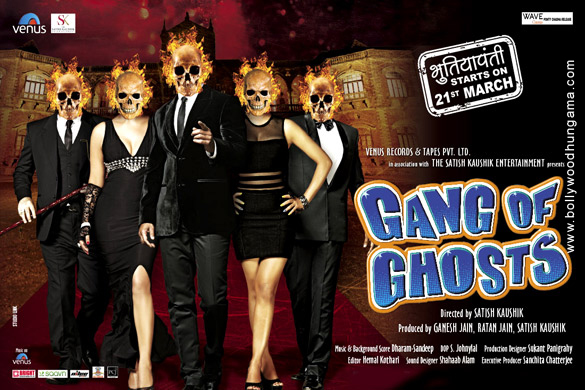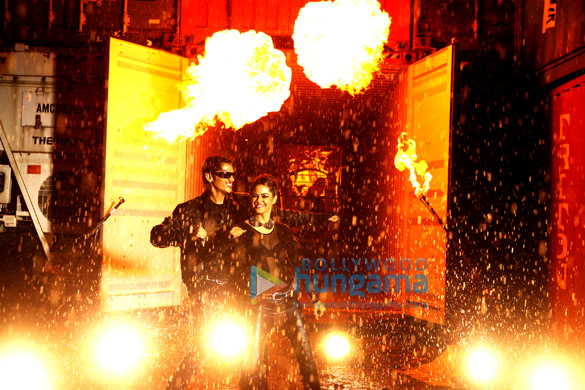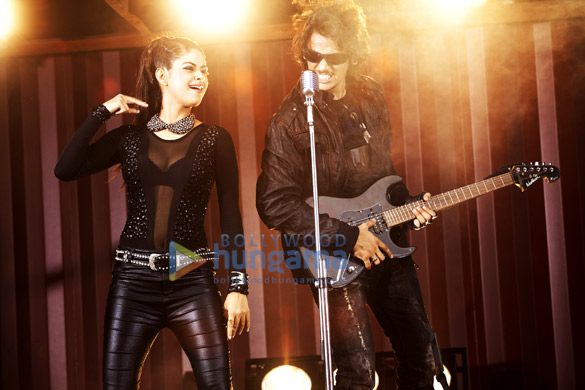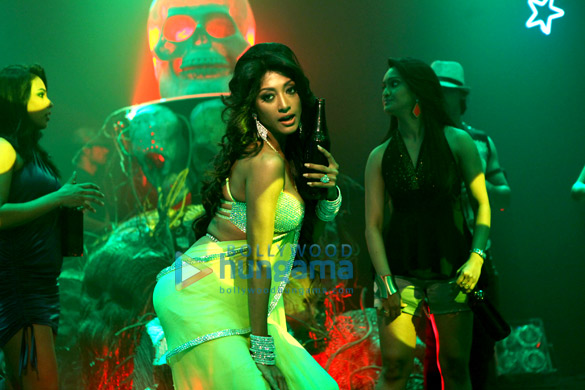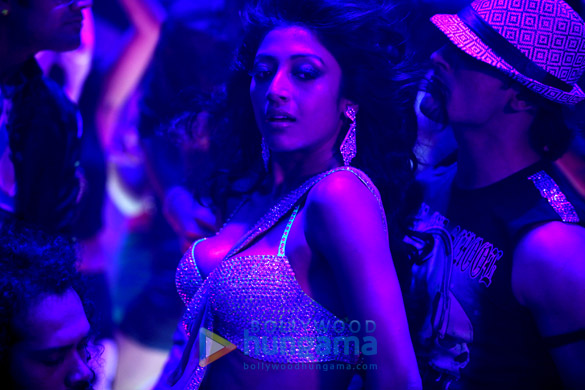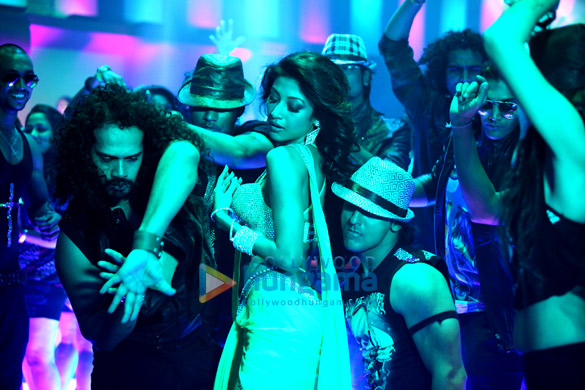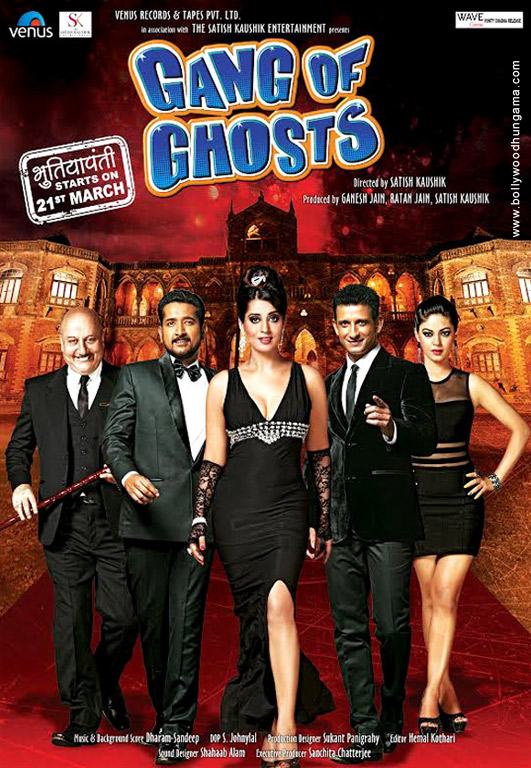Music: Dharam-Sandeep & Aamir Ghulam Ali
Lyrics: Satish Kaushik, Vikas Kumar, Rashmi Singh & Late Qateel Shifai
Music Label: Venus
Expectations:
The music has to traverse multiple eras and genres as well as meet contemporary trends: a tough
call indeed for a new pair of composers -Dharam-Sandeep - who have, so far, only done some
piecemeal work. This is their big break from Satish Kaushik, a director known for great music
like Roop Ki Rani Choron Ka Raja, Prem and Tere Naam, who had discovered another
promising music duo, Sachin-Jigar in his film Teree Sang.
Music:
The layered composition 'Dasni Sharab Di' (Aamir Ghulam Ali-Malkoo-A.K.-Deepali
Sathe) is a tweak on a Ghulam Ali ghazal and Aamir, his son, has (officially and)
compositionally re-modelled this song for the film's needs. It is a fast-paced number with
techno gimmicks, though Qateel Shifai's lyrics have been kept unchanged. Besides Aamir's
distinctive (resembling his father's) voice, it is Deepali Sathe's punch-laden tones that make a
major impact despite the fact that she has only a few lines. We would definitely like to hear
much more of her solid voice.
Dharam-Sandeep's first track 'Naach Madhubala' (Aishwarya Nigam) seemingly blends
the style of Sajid-Wajid with Maharashtrian folk. The music is a faint hark-back to the duo's
underrated song, 'Tez Chale' from Department (2012), which also had its base in
Marathi folk. However, we wonder why Aishwarya Nigam (of 'Munni Badnaam Hui' from
Dabangg fame) had to mimic Mika - if that was the composers' brief, then they should got
the original singer!
Rupmati Jolly's twin numbers are nothing less than mini-treats in different ways. The retro
'Nahin Dungi' is the more mass-friendly song and replicates Geeta Dutt's style
with the timbre of the '40s female singers. The words ('Fokat Mein' or 'Mister Pocket
Ko Tatolo') have the apt lexicon, and the flavour, nuances and notes are perfectly revived.
'Sheeshe Ka Dil', the other track, is weightier, well-orchestrated, still retro,
and the most haunting melody on the album. Burnished with care and affection, the use of a blend
of old-style orchestra with a few deft contemporary touches elevates an already extraordinary
song to tall heights. This is one track that one cannot have enough of as we revisit the album.
Rashmi Singh's lyrics are evocative too.
A composer's true potential is always assessed by his best work - the rest is opportunity and
everything else collectively called luck! And given this song, Dharam-Sandeep's future work
needs to be watched with interest indeed.
The rock-heavy 'Ishq Behn Ka Dinna' (Vikas Kumar with Vishwesh Sharma) is
Hariyanvi rock and has a strong, catchy rhythm that separates it from the normal rock that we
hear in (over) abundance. The innate melody of the song comes across even amidst the heavy
treatment in this likable number.
Malini Banerjee-Aishwarya Nigam's 'Rimco' (with rap by Sandeep)' is the classic
'item' song of today, with the naughty words (Rashmi Singh) going on a no-holds-barred trip of
double entendre. However, the alluring composition carries and holds the day, though
Aishwarya's voice again seems Mika-ized in most of the track. Its Marathi folk idiom is back in
the best 'Mungada'-'Ek Do Teen Char'-'Chikni Chameli' tradition, and though the song has
a lower 'voltage' compared to these benchmarks, it is electrifying enough for a vigorous tango
on the dance floor!
'Jaayen To Jaayen Kahaan' (sung well by Manoj Mishra) revisits K.L. Saigal-esque
vocals with the modification of the S.D. Burman classic of that name, sung by Talat Mahmood in
Taxi Driver. However, this time, the result is average, and one cannot pinpoint the exact
reason for this!
Satish Kaushik gives a decent account of himself as a lyricist in the essentially 'spoofy'
lyrics he writes - the others being 'Naach Madhubala', 'Nahin Dungi' and the parody song,
titled 'Parody'. Sung by Sudesh Bhonsle and five more singers, it may have
thematic relevance within the film, but it is pretty ordinary. Bhonsle's mimicry of S.P.
Balasubramaniam's vocals in Saajan is arresting. Interestingly, the songs are all from the '90s
and early 2000's.
Overall:
The music is suited for the film. As far as commercial prospects go, the songs will be supported
by the film's performance. Since such variegated musical demands are not easy to meet, we would
rather encourage composers who take care about doing the right music for a film rather than just
hit tracks or being showoffs of their prowess at the cost of the film's needs.
Our Pick:
'Dasni Sharab Di', 'Nahin Dungi', 'Sheeshe Ka Dil'


